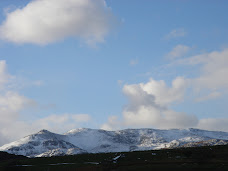It really is not a pleasure to follow the noble Lord, Lord Desai, because he raises the bar far too high. I am grateful to the noble Baroness, Lady Hoey, for this appallingly well-timed debate, to which I would just like to contribute three sets of facts. First, overall refugee numbers are currently running at about half of where they were 20 years ago. We are not the preferred destination in Europe. We are, as the noble Baroness, Lady Hamwee, said, well down the list of preferred destinations.
Secondly, yes, small boat numbers are up, partly for the reason the noble Lord, Lord Berkeley, adduced—the fences, patrols and heat sensors around the train tracks and marshalling yards mean that people are now driven to the even more dangerous sea route. But the principal reason clandestine numbers are up is that official resettlement routes are shut. Our schemes, in practice, no longer exist. We have closed the Syrian scheme, we have scrapped the Dubs scheme, we have left Dublin III and we have not got an Afghan scheme up and running. The largest group crossing the channel in the last 18 months, by nationality, were Iranians. In the last 18 months, 3,187 Iranians came. In the same period, one got in by the official route. How many came from Yemen in these 18 months? Yemen is riven by civil war and famine. None came by the official route —not one.
My third set of facts is as in the point made by the noble Baroness, Lady Bennett. The Home Secretary says that 70% of channel crossers are
“economic migrants … not genuine asylum seekers”.
That is plainly not true. Her own department’s data show that, of the top 10 nationalities arriving in small boats, virtually all seek asylum—61% are granted it at the initial stage and 59% of the rest on appeal. The facts suggest that well over 70% of asylum seekers coming across the channel in small boats are genuine asylum seekers, not economic migrants.
That is hardly surprising because the top four countries they come from are Iran, Iraq, Sudan and Syria—not Ghana, I say to the noble Lord, Lord Lilley. These people are fleeing persecution and destitution, and the sea route from France is the only one open to many of them. Why not have a humanitarian visa, as the noble Baroness, Lady Hamwee, said? The noble Viscount, Lord Waverley, gave the answer to the objection of the noble Lord, Lord Lilley. Those who had a valid claim for asylum would not be at peril on the sea.
Unless we provide a safe route, we are complicit with the people smugglers. Yes, we can condemn their case and we mourn yesterday’s dead, but that does not seem to stop us planning to break with the refugee convention. Our compassion is well controlled because it does not stop us planning, in the borders Bill, to criminalise those who survive the peril of the seas and those at Dover who try to help them. Of course, we can go down that road. But if we do, let us at least be honest enough to admit that what drives us down that road is sheer political prejudice, not the facts, because the facts do not support the case for cruelty.
















No comments:
Post a Comment